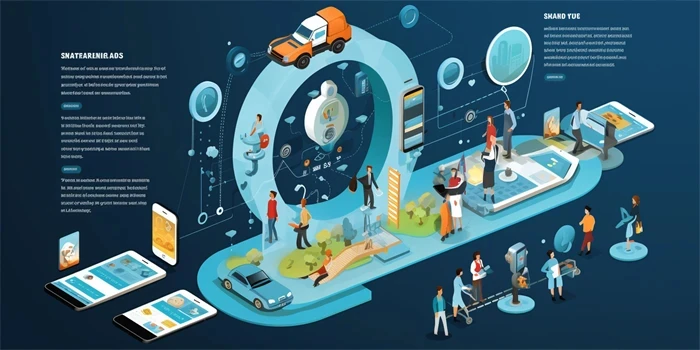Artificial Intelligence (AI) has emerged as a revolutionary technology, transforming various industries and significantly impacting our daily lives. One domain where AI has the potential to revolutionize the landscape is education and learning. By harnessing the power of AI, educators can enhance the educational experience, personalize learning, and improve outcomes. Let’s explore how AI can transform the field of education and learning.

1. Personalized Learning:
AI can adapt to individual students’ learning styles, preferences, and needs. By analyzing data and patterns, AI-powered systems can create personalized learning paths, delivering content tailored to each student’s strengths and weaknesses. This individualized approach can improve engagement, boost retention, and maximize learning outcomes.
Using AI-powered platforms like Duolingo, students can learn a new language at their own pace. The platform uses advanced algorithms to assess each user’s proficiency level and provides personalized exercises and feedback to optimize learning.
2. Intelligent Tutoring:
AI-powered intelligent tutoring systems can provide students with virtual guidance, acting as a knowledgeable teacher available 24/7. These systems offer immediate feedback, personalized assistance, and adapt the learning process based on individual progress. They can identify and address knowledge gaps and suggest supplementary resources to enhance understanding.
Khan Academy, an online learning platform, employs AI to deliver personalized instruction across various subjects. It offers a vast collection of practice exercises, instructional videos, and a personalized learning dashboard.
3. Automated Grading:
A traditional bottleneck in education is the time-consuming process of grading. AI can automate this task by utilizing machine learning algorithms to assess assignments, exams, and essays. Automated grading systems can provide immediate feedback, reduce teacher workload, and ensure consistency in grading.
Turnitin, a popular online plagiarism detection tool, uses AI algorithms to compare students’ work against a vast database, checking for originality and providing feedback on areas that may need improvement.
4. Smart Content Recommendation:
AI can analyze vast amounts of educational content and recommend materials suited to students’ interests and proficiency levels. By leveraging user data and machine learning techniques, AI-powered systems can suggest supplementary resources, books, or videos that align with the curriculum and cater to individual preferences.
Amazon Kindle, an e-book reader, incorporates AI to provide personalized book recommendations based on reading habits, ratings, and preferences of millions of users.
5. Adaptive Assessments:
Traditional assessments often rely on static tests. AI can revolutionize assessment methods by providing adaptive quizzes and tests. These assessments can dynamically adjust the difficulty level based on a student’s responses, effectively gauging their understanding and identifying areas that require further focus.
The online learning platform, ALEKS, employs AI algorithms to deliver adaptive mathematics assessments for K-12 and higher education. It personalizes the assessment and learning based on the student’s responses.
6. Virtual Reality (VR) and Augmented Reality (AR):
By integrating AI with VR and AR technologies, educators can create immersive and interactive learning experiences. AI can analyze student behavior within these environments, track progress, and provide real-time feedback, enhancing engagement, and promoting active learning.
zSpace, a virtual reality learning platform, utilizes AI algorithms to deliver interactive learning experiences across various subjects, enabling students to explore and manipulate virtual objects.
7. Data Analytics and Insights:
AI can process vast amounts of educational data, generating valuable insights for educators. By analyzing performance patterns, learning behavior, and other factors, AI-powered systems can identify trends, predict outcomes, and help in making data-driven decisions for curriculum development and instructional strategies.
Canvas, a popular learning management system, integrates AI-powered analytics to provide educators with actionable insights on student progress, engagement levels, and areas requiring attention.
8. Intelligent Language Learning:
AI-based language learning platforms can simulate conversations, evaluate pronunciation, and provide instant feedback to learners. By leveraging natural language processing and machine learning, these systems enable learners to practice and improve their language skills in a personalized and immersive manner.
Rosetta Stone, an AI-powered language learning platform, offers a blend of speech recognition technology, interactive exercises, and live tutoring sessions to enhance language proficiency.
FAQs:
Q: Can AI completely replace human teachers?
A: No, AI cannot replace human teachers. AI is a powerful tool that can enhance the teaching and learning experience, provide personalized guidance, and automate certain tasks. However, the role of human teachers in providing emotional support, mentorship, and critical thinking guidance remains indispensable.
Q: Does AI-powered education discriminate against certain students?
A: No, AI-powered education aims to reduce discrimination and provide personalized learning opportunities for all students. By analyzing individual strengths, weaknesses, and learning styles, AI can optimize learning paths and customize education to cater to each student’s needs, regardless of their backgrounds.
Q: Are there any privacy concerns associated with AI in education?
A: Yes, privacy concerns exist when AI collects and utilizes student data. It is crucial for educational institutions to implement robust data protection measures, prioritize user consent, and ensure compliance with privacy regulations to safeguard students’ personal information.
References:
1. Duolingo: https://www.duolingo.com/
2. Khan Academy: https://www.khanacademy.org/
3. Turnitin: https://www.turnitin.com/
4. Amazon Kindle: https://www.amazon.com/kindle-dbs/fd/non-fiction
5. ALEKS: https://www.aleks.com/
6. zSpace: https://www.zspace.com/
7. Canvas: https://www.instructure.com/canvas
8. Rosetta Stone: https://www.rosettastone.com/


